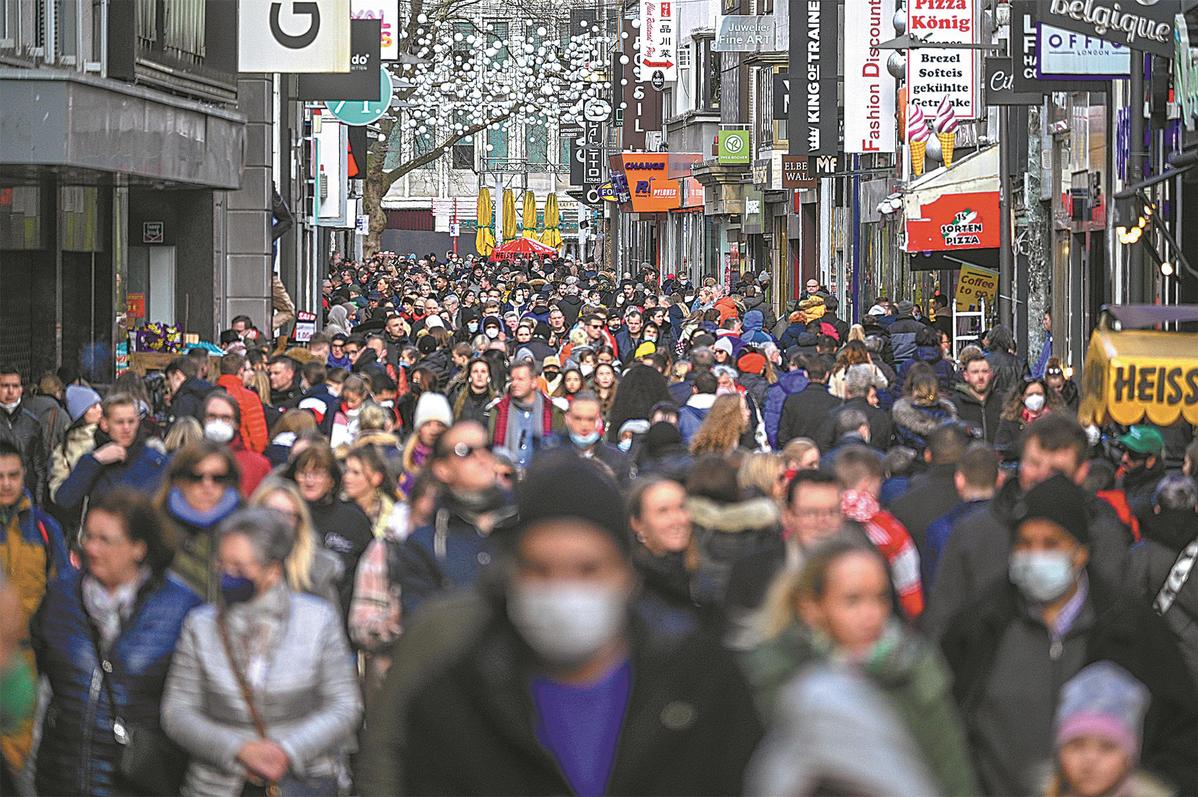COVID-19 'let loose' in nervy pandemic experiment


Terminology updated
Claims from some British media that the UK will be the first country to lift all COVID-19 restrictions are somewhat exaggerated.
Denmark dropped all such curbs from Feb 1, with Norway following suit soon after. In both nations, the four-day self-isolation guidance for infected people is a recommendation, not a legal requirement. Sweden scrapped all COVID-19 restrictions on Feb 9, and self-isolation has always been voluntary in the country.
Authorities in the three Nordic nations and the UK are also updating the terminology they use to classify the threat posed by COVID-19.
Denmark's Health Minister Magnus Heunicke said the novel coronavirus will no longer be characterized as a "socially critical disease", while Swedish Prime Minister Magdalena Andersson said her country is "moving into a new phase".
Norway's Prime Minister Jonas Gahr Store said COVID-19 is "no longer a major health threat" for most citizens, and Johnson has dubbed the end of restrictions the "strategy for living with COVID-19".
To some experts, these phrases are euphemisms for "endemic", the term given to a for which the spread, rates and presence are predictable.
In the United States, Kristian Andersen, an infectious researcher at Scripps Research in California, said it is far too early to redefine COVID-19 in this way.
He said some governments are acting under an "endemic delusion "or "belief that the pandemic is over".
"This is best exemplified by Denmark," Anderson wrote on Twitter. "Denmark effectively declared the pandemic over … despite the fact that cases, hospitalizations and test positivity are higher than ever, with deaths rapidly rising."
This assertion is borne out by the numbers-at the end of last month, when Denmark announced restrictions were to end, daily new cases averaged about 43,000, according to Our World in Data, representing a record high at that time. Daily hospitalizations were also at record levels, and confirmed deaths from COVID-19 were at their highest for a year, and rising.
The World Health Organization has warned countries against complacency, and said the world is not yet close to the end of the pandemic.
WHO Director-General Tedros Adhanom Ghebreyesus told reporters in South Africa on Feb 11 that the "acute phase" of the pandemic could be over by the middle of this year, but that will only be the case if 70 percent of the world is protected by vaccines. Currently, 62 percent of the global population has received at least one dose of vaccine, according to Our World in Data.
Late last month, David Nabarro, WHO special envoy for COVID-19, told Sky News it is "dangerous" to compare the with common and well-known respiratory illnesses.
Nabarro was responding to comments by UK Health Secretary Sajid Javid, who said at a Downing Street news conference, "We must learn to live with COVID, in the same way that we've learned to live with flu", and by Johnson, who told Parliament on Jan 19, "When COVID-19 becomes endemic, we will need to replace legal requirements with advice."
According to Nabarro: " (COVID-19) can mutate and form variants, and we've seen several, but we know there are more not far away. Quite honestly, we are not saying that this should be considered to be like flu or indeed like anything else-it's a new virus, and we must go on treating it as though it is full of surprises, very nasty and rather cunning."
He asked world leaders to "prevent people from getting infected "and "stay focused on the job", and also warned that "further surges "are to come.























